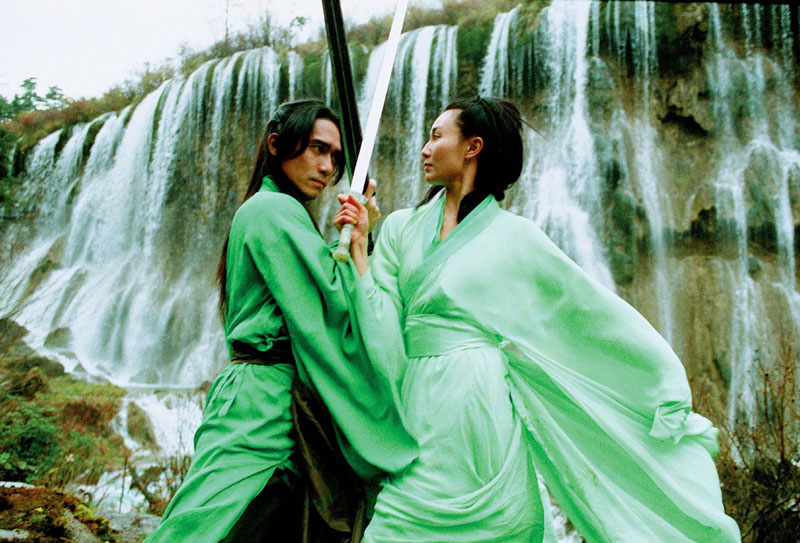

|
Format: Movie Genre: Sword Fighting Opened: 2003 Rating: ********** |
Directed
by: Main Casts:
|
Jet Li as
Nameless |
|
|
This is a film that permeates poignancy and majesty ¾ a visual spectacle that left me in awe. It is hard to imagine that veteran Chinese director, Zhang Yimou, was able to conjure up such scenes simply from the top of his head. He made use of the interplay of colours and a narrative style, frequently compared to Rashomon, to deliver the story of this breath-taking epic. To aid him, he had a luxury of talents, in the form of the Jet Li and Donnie Yen, Maggie Cheung and Tony Leung, and of course Zhang Ziyi. All of them did well for their acting scoresheet, which is expected, but it was Chen Daoming, playing the eventual Qin emperor, who gave an impressive performance that gave the more well-known cast a run for their money. He depicted the struggles of heart versus duty very convincingly indeed. |
| The story itself was set during the warring states when the Qin king (Chen
Daoming) was trying to unify China. Nameless (Jet Li) arrived at the palace,
with the weapons of Sky (Donnie Yen), Broken Sword (Tony Leung) and Flying
Snow (Maggie Cheung) to claim his reward. Nameless recounts how he managed
to defeat each of these assailants. His version was refuted by the king,
who implicated Nameless in the assassination attempt, only for Nameless
to correct him with the actual account. |
|
The stories were uniquely told by representing each story with different colours to set the mood of the story, and also to detach each story from the other. In Nameless's first account, red was used to depict the complex love-hate relationship between Broken Sword, Flying Snow, Sky and the spiteful Moon (played by Zhang Ziyi). He recalled how he was able to manipulate their feelings to eventually defeat them. The king exposed Nameless's attempt to assassinate him, and recounted his own version of the story. The king realized that Sky had lost intentionally to Nameless, and painted Broken Sword and Flying Snow as an honorable couple who wanted to get killed by Nameless in place of the other, to assist Nameless in his assassination attempt. The lives of Sky and one of the couple would allow Nameless to be within ten steps away from the king. This story however was painted with blue, of the loss and sadness felt by Broken Sword. |
 |
|
Nameless corrected the king's account with the fact that Broken Sword actually tried to prevent him from assassinating the king. Recalling an assassination attempt three years ago, he had the perfect opportunity but stopped short of killing the king. He revealed that his thoughts were with the world, and that unification of China would bring about an end to the sufferings of the common people. Nameless, upon realization of the exact meaning of the words, gave up on his assassination attempt. With the conflict of morals and duty, the king had no choice but to order for Nameless to be killed. Nameless was in black this time, indicating death. Upon hearing the news of the failed attempt in assassination, an angry Flying Snow fought with Broken Sword, only for the latter to allow the former to kill him, in an attempt to make her believe his feelings for her. A regretful Flying Snow ended her life as well in an image so startling and beautiful that it would stab any viewer's heart. What impressed me most was the much touted fighting scene between Nameless and Sky, and also the impact of the massive army, comparable to that of Lord of the Rings 2. The film ultimately questioned the ideology behind heroism, but as an epic, it painted a picture of the Qin emperor, which many historians would disagree with. An emperor known for his hard-handed ways have suddenly been painted in a very positive light. Nonetheless, this is a film that deserved its hype.
|




